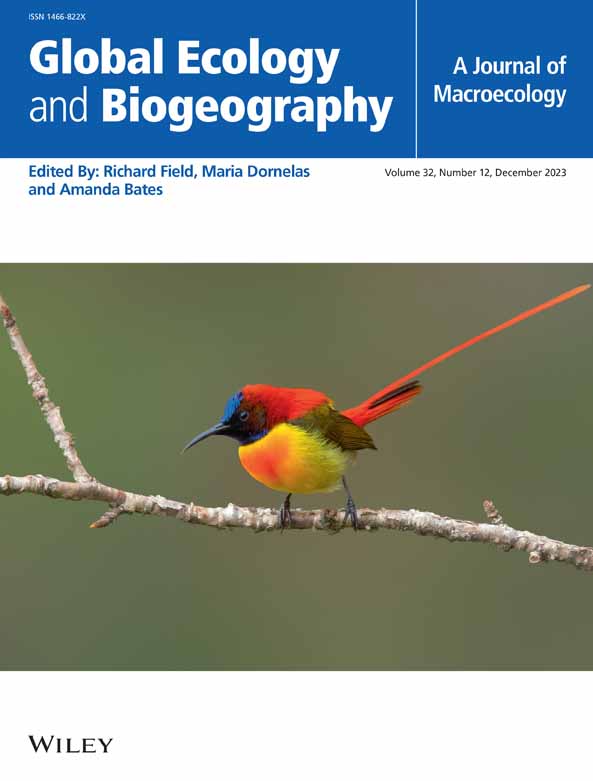Despite unprecedented environmental change due to anthropogenic pressure, recent work has found increasing dissimilarity due to turnover but no overall trend in species diversity through time at the local scale. Functional diversity provides a potentially powerful alternative approach for understanding community composition by linking shifts in species identity to the characteristics that underpin ecosystem processes. Here we present the first multitaxa, multisystem analysis of functional diversity and composition through time.
Global, with a North American focus.
1923–2014.
Mammals, Birds.
We paired thousands of bird and mammal assemblage time series from the BioTIME database with existing trait data representative of species' functional roles to reconstruct time series of functional diversity and composition metrics. Our dataset included 2432 time series of yearly observations from 50 studies with a maximum spatial extent of 95 km2. Using generalised linear mixed models, we estimated general and study-level trends for those metrics.
We found no overall temporal trends in functional diversity metrics. Study characteristics such as taxa, realm, biome, or protection status did not distinguish between types of change exhibited by communities. We found evidence of a temporal increase in fish consumption across all communities but no evidence to support multiple predictions for specific traits, including decreasing body size, dietary shifts or changes in bird foraging strata.
General temporal trends indicate that on the aggregate, studies do not exhibit consistent changes in functional diversity across many taxa, biomes and realms. At the study level, the majority of studies showed no temporal trends in species or functional diversity, with the remainder of the studies falling into broad categories of functional diversity change independent of species richness, functional redundancy loss (species richness declines with functional richness maintained) and increasing species richness sometimes accompanied by increasing functional richness.


